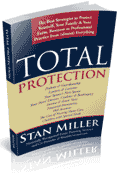Medicaid Asset Protection Planning
Medicaid Planning is the process of engaging in an estate planning strategy that will later qualify an individual for Medicaid Benefits. A key part of that planning strategy is the creation of a Medicaid Asset Protection Trust.
Qualifying For Medicaid Benefits
Qualifying for Medicaid benefits for long-term care is riddled with complex rules and regulations and should not be attempted without the advice and services of an experienced elder law attorney. In Arkansas, the general rule is that you can have no more than $2,000, an auto and a home in order to qualify for Medicaid’s Long-Term Care Program. Because of the low asset requirements, many times, people are tempted to give away assets thinking that it will qualify them for Medicaid benefits. Unfortunately, giving away assets will usually only delay the applicant’s eligibility which is the opposite effect they wanted to accomplish. The general rule of thumb is for every $5,100 you gave away, it delays your Medicaid eligibility by one month by assessing a one month “penalty” period for every $5,100 improperly gifted. If done properly, however, with the help of an experienced elder law attorney, these eligibility delays can be minimized and in some circumstances eliminated altogether when done in accordance with the Medicaid rules.
Frequently Asked Questions About The Arkansas Medicaid Program
What does the Arkansas Medicaid Program Cover?
The Arkansas Medicaid program [called the Long Term Care Program] covers both assisted living and home care
What is the “lookback” period on transfers?
Answer: 60 months
What is the Penalty Period “Divisor for 2015?”
Answer: $5,098
Arkansas is an Income Cap State. What are the State Income Limits?
Personal Needs Allowance: $40
MMMNA lower range: $1,891.25—upper range: $2,898
What are the State Asset Limits?
Individual Resource Allowance: $2,000
CSRA Lower Range: $23,184
CSRA Upper Range: $115,920
Home equity limit: $525,000
Life insurance face value limit: $1,500
Burial savings account limit: $1,500
What about Retirement funds?
Retirement funds are available assets, unless the funds are converted to an immediate irrevocable DRA compliant annuity (annuitized), (but the distributions from the annuity are income and included in the patient responsibility amount).
What assets are Available or “Countable” as a resource?
Checking accounts
Savings accounts
Brokerage accounts
Certificates of deposit
Stocks and bonds
U.S. savings bonds
Primary residence if applicant does NOT intend to return home (if equity is greater than $500,000.00, then applicant does not qualify for Medicaid)
Real property, other than primary residence (with certain exceptions)
Limited partnerships
Cash value of life insurance if the total face value of all such policies is greater than $1,500.00
Vehicles other than the one excluded vehicle
Boats, unless it is your primary residence
Recreational vehicles, unless it is your primary residence or your only vehicle
Loans payable to applicant
Deferred annuities and some immediate annuities, depending on how they are structured and the date purchased
Retirement funds, generally
What assets are excluded from the calculation?
Primary residence if equity is less than or equal to $525,000 and applicant intends to return home. [But note that recovery is possible from the home equity]
Primary residence, regardless of equity, if spouse, child under age 21, or blind or disabled child of any age lives there. i think the $525,000 limit still applies
One vehicle
Life insurance with no cash value
Life insurance with cash value if the total face value of all such policies is less than or equal to $1,500.00
Irrevocable burial contracts
$1,500 designated for burial expenses (revocable burial contracts, burial savings accounts, or life insurance policies)
One burial plot per family member
Personal property
Planning Strategies
Below is a partial list of strategies that are allowed in the state of Arkansas.
- Gifting Plus Partial Return
- Make Exempt Transfer (any asset)
- Make Exempt Transfer to Sole benefit trust
- Make Exempt transfer of home
- Transfer Home, Retain Life Estate Interest with a gifting penalty
- Purchase Life Estate in Home of Another (as long as it is home of the applicant)
- Purchase Prepaid Funeral Services Contract OR Create a Burial Savings Account
- Purchase an Exempt Automobile
- Make Exempt Renovations to the Home
- Transfer assets to an irrevocable trust with gifting penalty (Medicaid Asset Protection Trust)
Gifting Away Assets
For gifting away assets, there is a “Safe Harbor” for assets that were gifted away more than 5 years before applying for Medicaid. Basically, upon applying for Medicaid, the State only looks back 5 years or 60 months to see if any assets were given away. Assuming there are no gifts made within the 5 year period, any gifts made more than 5 years ago, will be ignored for the asset eligibility test for Medicaid. This is referred to as the 5-year look back rule.
Assisting Individuals and Families
Our attorneys are able to assist individuals and families in developing long-term care plans to avoid depleting their assets should they become ill and need long-term care. Also, for those individuals who are already in a nursing home, despite the lack of planning, our law firm can still help families preserve some assets and still qualify for Medicaid benefits before their resources are exhausted.
Things to Keep in Mind
Keep in mind that Medicaid planning is very fact specific and not all planning techniques work in every situation. Before giving away or spending down any of your assets, contact our office to schedule a consultation to discuss Medicaid benefits and to review your planning options.
Our Connections






ILP + The Book

It is possible to protect yourself, your family and your business or professional practice from the real threats that keep you up at night. The law provides more and better solutions than ever before in history. In this book, Stan explains in clear, understandable language how these powerful solutions can be deployed to protect what you have earned and built.
Available Early Summer 2015
ILP + The Webinar

In this hour-long webinar, Stan explains how to avoid probate and protect your heirs with a revocable living trust. You will learn how to protect your loved ones what many consider to be an expensive, lengthy, and unnecessary court process. You will also learn what a living trust is and why having a living trust will protect your children, grandchildren and other heirs.
Available Now









